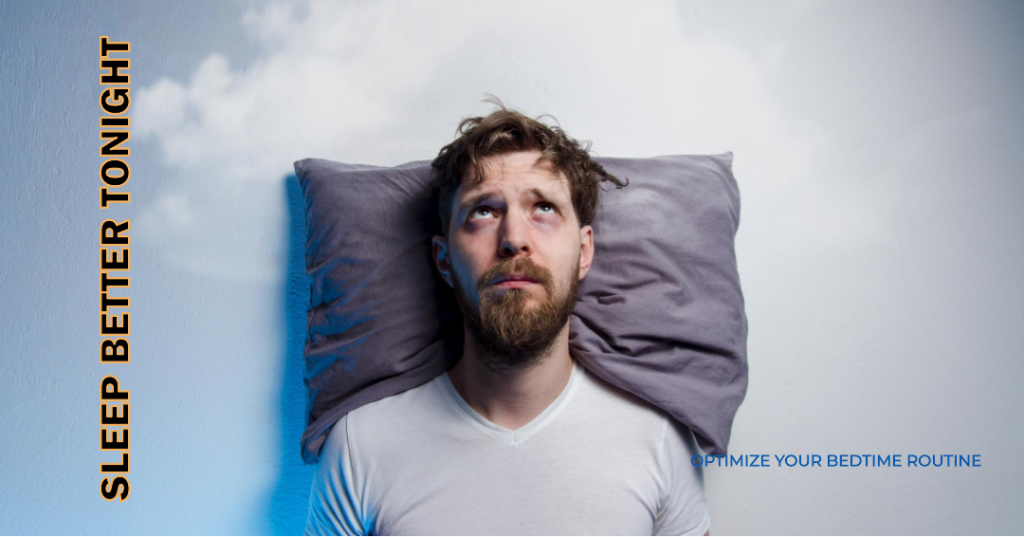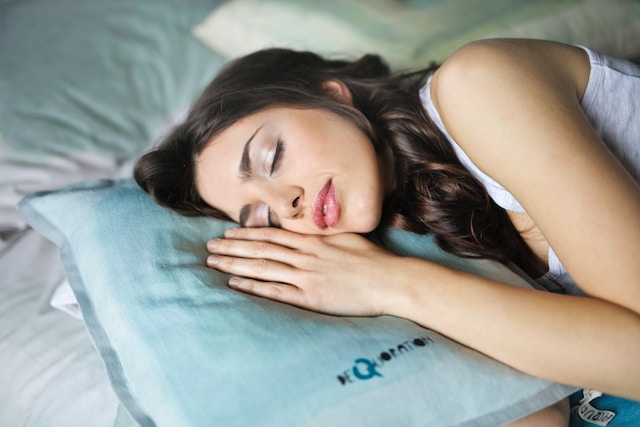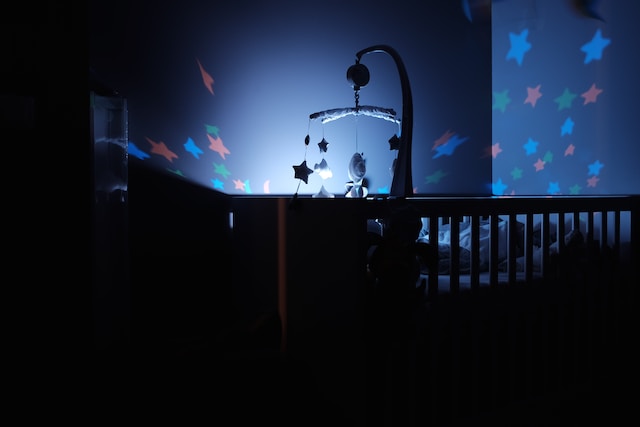Are you struggling to get a good night’s sleep? It’s time to optimize your bedtime routine for better sleep.
By establishing a consistent sleep schedule, minimizing electronic device use, incorporating light snacks and bedtime tea, practicing relaxation techniques, and creating a sleep-friendly bedroom environment, you can improve your sleep quality and wake up feeling refreshed and rejuvenated.

Say goodbye to tossing and turning and hello to a restful night’s sleep.
Let’s dive into these evidence-based strategies to help you sleep safely and soundly.
Related Post: Pro Tips To Get Better Sleep With Sunburns
Bedtime Routine for Better Sleep: Key Takeaways
- Establish a consistent bedtime and sleep schedule every day
- Minimize electronic device use, especially before bedtime
- Incorporate light snacks and bedtime tea to calm the stomach
- Practice relaxation techniques such as taking a warm bath or practicing meditation before bed
- Create a sleep-friendly bedroom environment by making the room cool, dark, and quiet.
Establishing a Consistent Sleep Schedule
You should stick to a consistent sleep schedule every day to optimize your bedtime routine for better sleep. A consistent sleep schedule offers numerous benefits.

It helps regulate your body’s internal clock, making it easier for you to fall asleep and wake up at the same time every day. This regularity promotes better sleep quality and improves overall sleep hygiene.
However, disruptions to your sleep schedule can happen from time to time. To overcome these disruptions, there are a few tips you can follow.
Firstly, try to maintain a consistent wake-up time, even on weekends. This helps regulate your body’s natural sleep-wake cycle.
Secondly, avoid napping during the day, as it can interfere with your ability to fall asleep at night.
Lastly, limit your exposure to bright lights and stimulating activities before bedtime.
Minimizing Electronic Device Use
Put away electronics at the beginning of your bedtime routine to minimize the impact of blue light on your sleep. Electronic devices emit strong blue light that can suppress the production of melatonin, the hormone that regulates sleep. By avoiding the use of electronics in the evening as much as possible and turning on the red-light filter on your phone, you can reduce the exposure to blue light.
But what can you do instead? Try incorporating electronic device alternatives into your bedtime routine. Instead of scrolling through your phone, you can read a book, practice relaxation techniques like meditation or listen to calming music. These alternatives can help you relax and turn your attention away from worries, preparing your mind and body for a restful night’s sleep.
Incorporating Light Snacks and Bedtime Tea
To incorporate light snacks and bedtime tea into your routine, choose healthy foods for better sleep like fruit, yogurt, cherries, grapes, kiwi, rice, and nuts. These healthy snack options provide essential nutrients and are easy to digest, preventing discomfort and promoting better sleep.

Fruits like cherries and kiwi are rich in melatonin, a hormone that regulates sleep-wake cycles. Yogurt contains tryptophan, an amino acid that helps produce serotonin and melatonin, promoting relaxation and sleep.
Additionally, herbal teas like chamomile or lavender can have soothing effects on the body, helping you unwind before bed. These teas are caffeine-free and can aid in reducing anxiety and promoting a restful sleep.
Incorporating these light snacks and bedtime teas into your routine can enhance your sleep quality, leaving you feeling refreshed and energized the next day.
Relaxation Techniques
Take a warm bath to trigger sleepiness and relax your body and mind before bedtime. This relaxation technique can help improve your sleep quality and prepare you for a restful night.
Incorporating mindfulness meditation into your bedtime routine can further enhance your relaxation and promote better sleep. Here are some benefits of these relaxation techniques:
- Warm baths: The warm water raises your body temperature and helps induce sleepiness. It also relaxes your muscles and relieves tension, making it easier to fall asleep.
- Mindfulness meditation: This practice involves focusing your attention on the present moment without judgment. It can reduce stress, anxiety, and racing thoughts, promoting a calm and peaceful state of mind before bed.
By incorporating warm baths and mindfulness meditation into your bedtime routine, you can create a sleep-friendly environment and improve your overall sleep quality.
Sweet dreams!
Creating a Sleep-Friendly Bedroom Environment
Dim the lights in your bedroom and use blackout curtains to create a sleep-friendly environment that promotes restful and uninterrupted sleep. Remove clutter to create a calm atmosphere. Improving sleep quality is essential for overall health and well-being.

A sleep-friendly bedroom environment has numerous benefits, including better sleep duration and quality. When you dim the lights in your bedroom, it signals to your brain that it’s time to wind down and prepare for sleep. Using blackout curtains helps to keep out any unwanted light, creating a dark and peaceful space for sleep.
Removing clutter from your bedroom can help reduce stress and create a calm atmosphere. A sleep-friendly bedroom environment promotes relaxation, reduces distractions, and enhances your ability to fall asleep and stay asleep. Prioritizing these aspects in your bedroom can greatly improve your sleep quality and contribute to a healthier lifestyle.
Frequently Asked Questions
How Long Does It Typically Take for the Brain to Wind Down for Sleep Before Bedtime?
It typically takes a few hours for your brain to wind down before bedtime. Establishing an optimal bedtime routine, such as minimizing electronic device use and incorporating relaxation techniques, can help facilitate this process.
Is It Necessary to Completely Avoid Using Electronic Devices in the Evening?
Using electronic devices before bed can disrupt your sleep due to the blue light they emit, which suppresses melatonin production. It’s best to avoid them in the evening if you want better sleep.
Can You Provide Some Examples of Healthy Light Snacks That Can Be Consumed Before Bed?
Examples of healthy light snacks before bed include fruit, yogurt, cherries, grapes, kiwi, rice, and nuts. These snacks can calm your stomach and provide nutrients without disrupting your sleep.
Besides Listening to Music, What Other Relaxation Techniques Can Be Effective in Improving Sleep Quality?
Deep breathing and meditation are effective relaxation techniques for improving sleep quality. By focusing on your breath and practicing mindfulness, you can calm your mind and relax your body, leading to a more restful night’s sleep.
Are There Any Specific Temperature and Lighting Recommendations for Creating a Sleep-Friendly Bedroom Environment?
To create a sleep-friendly bedroom, keep the temperature between 65-68 degrees Fahrenheit and make sure the room is dark and quiet. Use dim lights or blackout curtains, and remove clutter for a peaceful environment.
Conclusion
Optimizing your bedtime routine can enhance the quality of your sleep.
It’s crucial to establish a consistent sleep schedule and stick to it.
Remember to minimize the use of electronic devices, as they can disrupt your sleep.
Instead, try incorporating light snacks and bedtime tea to calm your stomach and promote sleepiness.
Relaxation techniques like taking a warm bath or listening to soothing music can also help you unwind.
Lastly, create a sleep-friendly bedroom environment that is cool, dark, and quiet.
By following these strategies, you can achieve a more restful night’s sleep.
